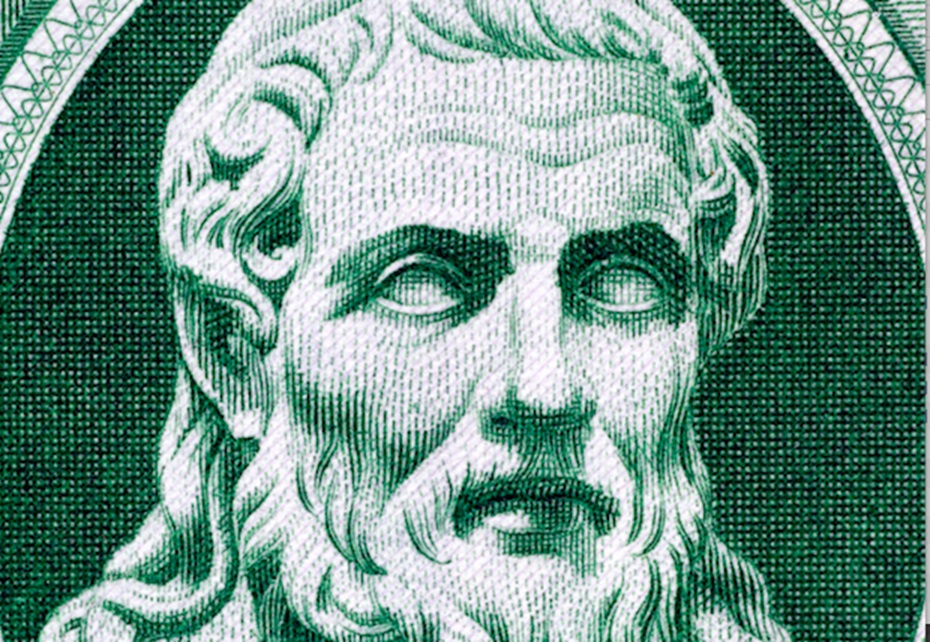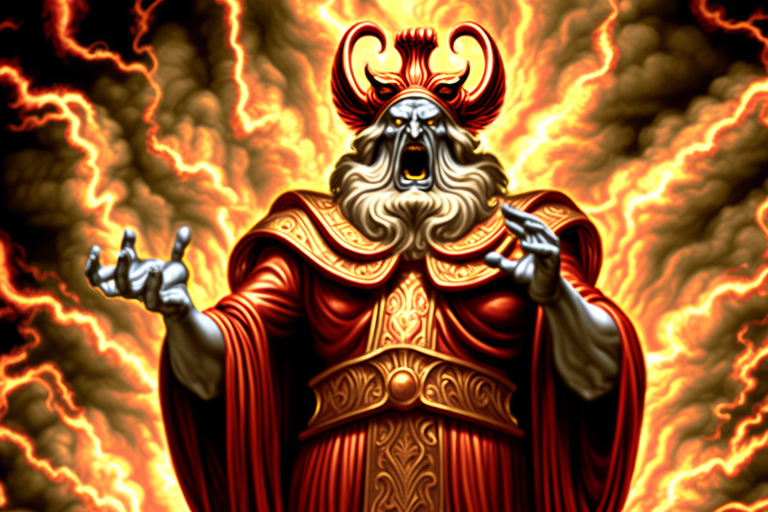Everything the ego does it does unwillingly. Even when the ego (or ‘Mind-Created Sense of Self’) enthusiastically pursues its goals (and makes a big song and dance about how great this is) it is doing so unwillingly – it’s ‘unwilling’ in the sense that the ego is end-gaming, it’s unwilling in the sense that it’s not doing what it’s doing for the love of it but because it desires to obtain the prize. The ego has its eye on the destination and getting there is all that it cares about. Any enthusiasm we experience is thus to do with the ‘anticipation of the outcome’ and not because we are enjoying the activity. We’re ‘doing stuff for profit’. This is the ‘contradictoriness of finite play’ which – as James Carse says – is ‘play that is against itself’, play that we engage in only for the sake of bringing it to an end. Another way of talking about this is simply to say that everything the ego or Extrinsic Self does is forced, and forcing is never a pleasant business.
Forcing means that ‘it’s not going to happen unless we make it happen’ and this is such a normal thing for us that we never give the matter a second thought. This is Purposeful Mode and Purposeful Mode is the default, it’s how we spend almost all of our time. We would actually be quite lost if we weren’t able to carry on being purposeful, if we weren’t able to know what we’re doing and why (i.e., if we weren’t firmly anchored in the assumed concrete reality). It sounds very grim to talk in terms of forcing (we’d like to phrase it in a different way, if we could) but that’s what it is – we’re imposing ‘the way we think things should be’ on ‘the way things are’. This is the Paradigm of Control, in which the universe is seen as passive or inert, and we are seen as the ‘movers and shakers’, the ‘causal agents’.
What we’re talking about here is hubris therefore – we’re ‘idolising thought’, which is an indirect way of idolising ourselves. We’re putting thought on a pedestal and we are placing our total trust in it – if thought says something is ‘good’ then we’ll bet everything we’ve got on it being so, and we’ll do the same, in reverse, if it’s tells us that something is ‘bad’. Its word is our command. We’ll do anything it tells us to do (we could say that we’ll do anything it tells us to do ‘without thinking’ but this clearly wouldn’t be expressing the situation properly since it’s not that ‘we’re acting without thinking’ here but that we’re ‘acting without awareness’). Awareness doesn’t come into it – we are the obedient slaves of thought and we don’t see anything wrong with this. We are the obedient slaves of thought and yet we claim that thought serves us…
What comes out of thought is always forcing (or as we could also say, what comes out of the Extrinsic Self is always forcing). Forcing means ‘the imposition of some form of order that belongs entirely to thought and has nothing whatsoever to do with the world as it is in itself’. Daoism talks about harmonious action – action that does not ‘cut across the grain of nature’, so to speak. Daoism isn’t about control in other words, which is where – as we have just said – we act as if the universe has no other function than to be the passive recipient of our ideas, our will. This might be referred to as Extrinsic Order, order that comes from the outside. Extrinsic Order – by its very nature – does not recognise that there is such a thing as Intrinsic Order, which is to say, order that doesn’t come about as a result of applying rules. The ‘outside’ doesn’t know that there’s ‘an inside’, so to speak; the Stated World cannot comprehend that there is a world which is not stated.
What’s actually happening here is that thought is not recognising any reality other than the so-called ‘reality’ that it itself assumes – it does not recognise any reality other than itself, in other words. Needless to say, it shares this characteristic with the ego, with Extrinsic Self. Extrinsic order – the order of things that is assumed by thought – is not any sort of reality at all, however; it’s an analogue of reality, a version of reality that only exists because we say it does, because we arrange for it to. It’s an ‘artificial setup’, in other words; it is ‘an extension of our will’ and as such it can only ever do what we tell it to do. There is a clear Gnostic parallel here, as evidenced by the following passage taken from – Metahistory.org:
In the Gnostic narrative, Yaldabaoth, the Lord Archon, commands his clone-like minions to create a virtual display (stereoma) of hierarchical worlds that reflect the living fractal kaleidoscope of conscious, animated currents in the Pleroma, the galactic core. The Demiurge can only imitate, he cannot create or originate. The Gnostic texts are clearly sarcastic in describing the celestial hierarchies of the Archons, because for Gnostics all this celestial kitsch has nothing to do with the wonder of life that will unfold on earth, the realm where Sophia is embodied.
The Demiurge can never create anything new but can only imitate, which recalls the often-quoted line from Lord of The Rings – “…the shadow which bred them can only mock, it cannot make: not new things of its own.” J.R. R. Tolkien was himself a practicing Catholic, and this line of reasoning goes back to the idea found in medieval theology of the Devil being the ape of God. Going back even further, we can link this with the well-known principle that evil isn’t ‘an actual thing in itself’ (any more than darkness is) but simply ‘the absence of good’. As Augustine of Hippo, writing in the fourth century AD, puts it –
Where there is no privation of the good, there is no evil. Where there is evil, there is a corresponding diminution of the good.
The ego (which is to say, ‘the Thought-Created Sense of Self’, or ‘who we think we are’) cannot ever create anything new because it is only a shadow, not a ‘thing-in-itself’, and – as a shadow – it can only control, which is to say, it can only ever manipulate what’s already there. This is the ‘tiresome ringing of changes’ spoken of by Robert de Ropp, where apparent novelty is simulated by tediously reshuffling the same old categories, the same old elements, which cannot themselves ever be changed. On the face of it, ‘the power to control’, ‘the power to successfully impose one’s will’ is power indeed and we might be tempted to admire it on this account, since there is a tendency to admire power since we would all (secretly, or not so secretly) like to be the King of the Castle ourselves. The ego always wants to be ‘the King of the Castle’, this yearning for unconditional personal supremacy being, as we have said, its defining characteristic.
The Extrinsic Self has a pronounced tendency to admire successful tyrants on account of it being an ‘unsuccessful’ one; the ego worships power because it desires power for itself and it identifies with the powerful, seeing itself in them. The ubiquitous everyday ego sees itself as ‘special’ (despite being the very reverse of that) and so its sees itself of having a right to power – it is ‘entitled’ in this respect and it will always be disgruntled and embittered when it cannot have free scope to enact its every whim. Anything that stands in the way of the fulfilment of its will is an evil, after all. The ego is always automatically ‘in the right’ (because it is necessarily biased, because that is the way it is inevitably going to look at things) and so any other way of doing things (any way that isn’t our way) automatically gets to be wrong. ‘If you’re not part of the solution then you’re part of the problem’ it says glibly, and this is the ‘black-and-white world of the Extrinsic Self’.
When it actually comes down to it however the power to impose one’s will (‘the power to be able to force whatever one wants to force’, ‘the power to silence the opposition’) doesn’t amount to anything – it doesn’t amount to anything because the exercise of power is always 100% sterile. When I achieve what I want to achieve what I have achieved mocks me – it mocks me because what I see in front of me is simply myself reflected right back at me. All I ever hear are echoes of what I myself have said; no matter what I do, the result is always the same – the result is always ‘me being reflected back at myself’. The enactment (or materialization) of my desire is my projection, it is ‘an extension of my starting-off point’ and so no matter what I do I cannot escape this starting-off point (which was never a real thing at all, but merely an assumption I cannot rid myself of, an ‘assumption that sticks). Hell isn’t ‘other people’, as Jean Paul Sartre has said, hell is oneself. In the words of T.S. Eliot –
What is hell? Hell is oneself.
Hell is alone, the other figures in it
Merely projections. There is nothing to escape from
And nothing to escape to. One is always alone.
Image – wallpaperflare.com






